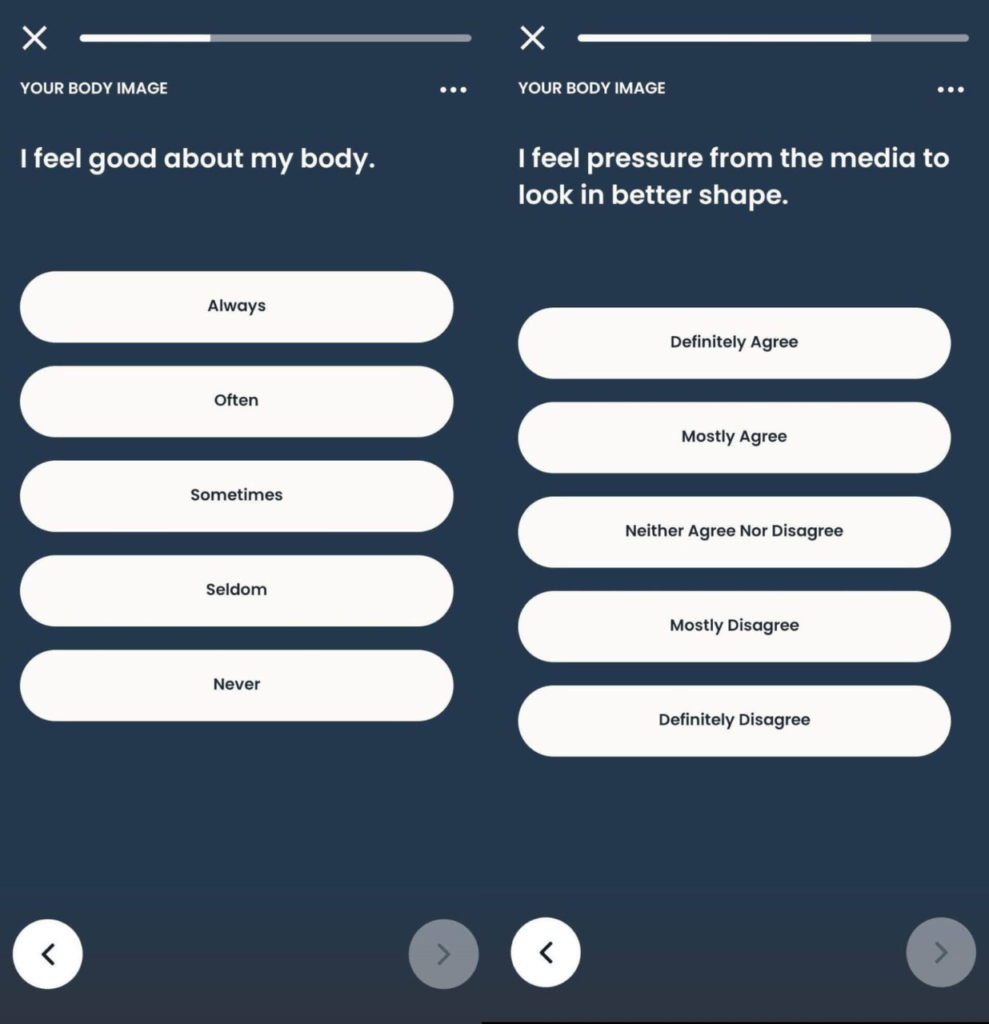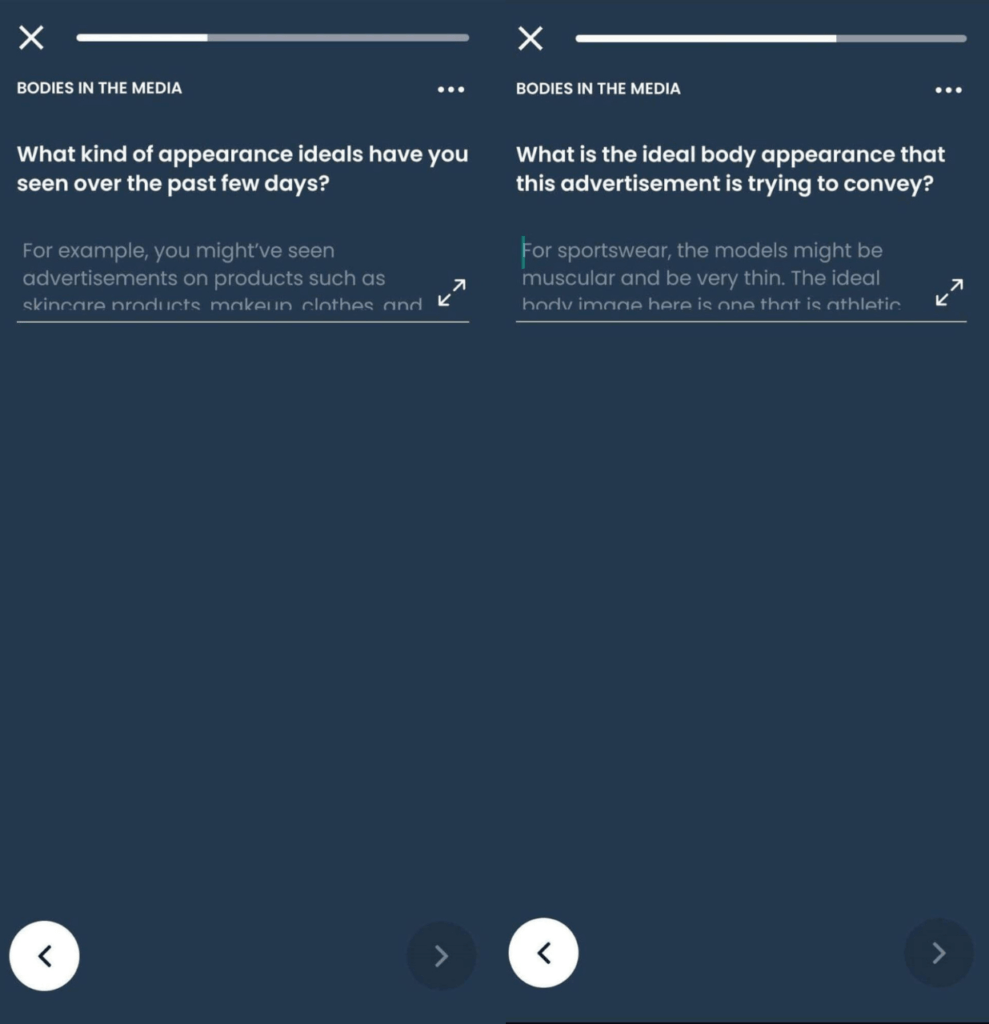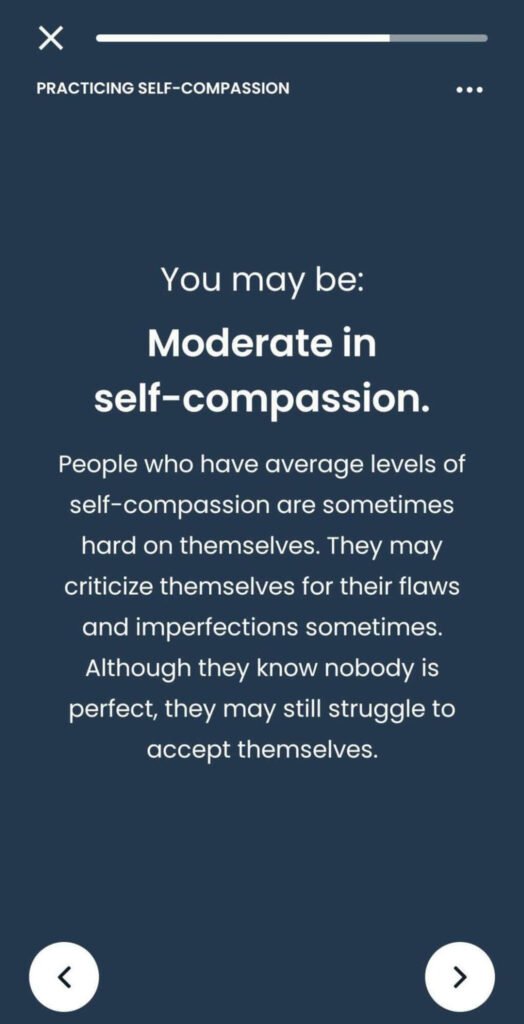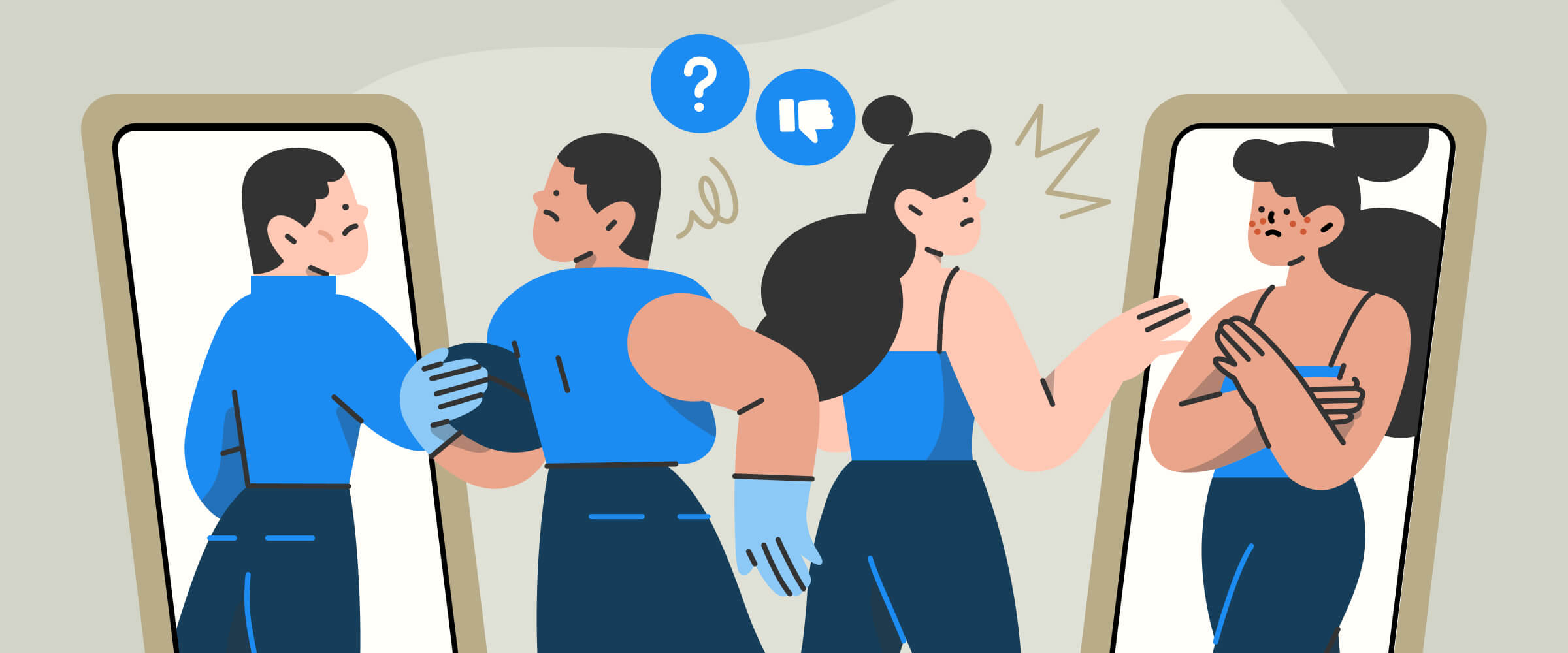This is a user-contributed review of Intellect’s “Improving Your Body Image” learning path. After using the app five minutes a day for nine consecutive days, young adults in Singapore reported a 40% decrease in body dissatisfaction.
Therapy can be expensive, and while seeking professional mental health care is ideal, putting a significant dent in your finances can be counter-effective for your wellbeing. Thankfully, we live in the age of the internet, and my quest for credible and cost-effective online resources led me to Intellect.
Intellect has self-help tools, resources, and modules that address a range of mental health concerns such as anxiety, depression, and body image issues, to name a few. These modules, known as “learning paths,” come in bite-sized portions and utilise evidence-based approaches like Cognitive Behavioural Therapy (CBT) and Acceptance and Commitment Therapy (ACT).
Learning to love myself
As a member of Generation Z who grew up with social media, I’m all too familiar with the symptoms of body dysmorphia. As a child, I felt confident in my skin, but that confidence quickly faded in the face of society’s unrealistic beauty standards.
At an impressionable age, I was teased for my appearance and weight. Over time, these comments eroded my self-confidence, and I became incredibly self-conscious of my appearance and weight. I wished I were thinner and more attractive, and found myself struggling with feelings of depression, stress, and anxiety. These culminated in an unhealthy relationship with food, leading to a vicious cycle of self-loathing and regret.
At the start of my self-help journey, I focused on battling my depression and anxiety. Quickly, I realised that my self-worth was inextricably linked to my body image and, thus, began my journey towards a healthier self-perception.
Learning Path: Improving Your Body Image
When you sign up for Intellect, you’re prompted to set your goals, which can be modified later. Next, you can choose from the recommended learning paths or search by keyword. The learning path, “Improving Your Body Image”, is a 3-day program with five sessions in total. Each one comprises an audio recording, journaling prompts, and actionable takeaways.
Session I: Unpacking “ideal” appearances
On day one, you’ll confront the concept of ideal appearances and receive guidance on relinquishing unattainable standards. Ideal Appearances guide you through letting go of unattainable standards.
To begin, you’ll take a brief assessment that gauges your current relationship with your body. It’s worth noting that Intellect employs zero-knowledge encryption, ensuring that all your data and responses remain private.
I scored “low” in body appreciation and self-compassion, and have apparently internalised ideals about appearances “strongly”. This isn’t news, but the survey gave me a deeper understanding of my attitude towards my body. It serves as a starting point for increasing self-awareness, and the results act as a benchmark for measuring progress.

The first session, “Appearance Ideals in the Media”, is available in both audio and text modes, with a relaxed and soothing narration that allows users to take their time.
The session provides a clear and structured approach to recognising thinking patterns and building a better appreciation of your body and looks
By walking you through unattainable beauty standards created by the media, it helps you to recognise unhelpful thinking patterns and appreciate your body and appearance in a structured manner. After the audio clip, you can reflect on its content by answering:
- What kind of appearance ideals have you seen over the past few days?
- What is the ideal body appearance that this advertisement is trying to convey?
- What thoughts and feelings did you have about your own body after seeing the advertisement?

It’s easy to get swept away by photographs of influencers with “flawless” skin and “perfect” bodies, and subconsciously hold ourselves to these standards. In face of these marketing gimmicks, we may break free from self-comparison why asking ourselves:
- What message is the ad trying to convey?
- What tactics could the advertiser have used?
- What do they gain from showing you this?
The session made me evaluate the beauty standards I subscribe to and the content I consume. Realising that huge conglomerates don’t dictate my self-perception, I unfollowed social media accounts that no longer serve me. Pages that advocated for self-love, on the other hand, can stick around.
Since what I’d like to call “the purge”, I’ve started seeing myself in a more positive light and holding myself more compassionately. Intellectualising unrealistic beauty standards is one thing, but putting this knowledge into practice has tangible benefits.
Session II: Comparing Appearances
On day two, the learning path deals with Comparing Appearances. This session is more comprehensive but still time-efficient. The audio content dives into the causes and effects of comparing oneself to others, while the activity offers ways to apply this knowledge in daily life:
- Give compliments to yourself and others that are not about appearance, such as “We did a good job at work today!”
- Focus on positive qualities about yourself, such as “I’m really punctual and detailed!”
- Learn to accept compliments from others and thank them, especially if these are positive qualities about you.
It sounds commonsensical, but we tend to forget that our body’s merits far extend beyond physical attributes. When prompted to list things about my body I’m grateful for, being able to recover quickly from illnesses and carry a baby for nine months came out top.
This exercise can elicit different responses from different people, but it made me appreciate the versatility and resilience of our bodies, and how much we tend to overlook the amazing things our bodies do for us.
Listing positive qualities that weren’t skin-deep also proved revelatory. Truth be told, scrutinising my appearance has affected how I view myself as a whole. It took me a while to come up with three personality traits I consider positive: creativity, loyalty, and empathy.
Session III: Being self-compassionate
Day 3 is all about self-compassion, and while Intellect warned me that this session might take longer, I was pleasantly surprised at how quickly I was able to complete it, even though I took my time with it.
This session helps you recognise and counteract negative self-talk, which can be so deeply ingrained that it becomes automatic. The audio recording walks you through exercises that make you more aware of these thoughts and replace them with more compassionate and positive ones. If anything, it was a powerful reminder that we often treat ourselves much more harshly than we would ever treat others.

By answering the same questions as the initial assessment, the final assessment allowed me to see how my relationship with my body had changed after completing the sessions. When I started, I had “low” levels of body appreciation and self-compassion, and “strongly” internalised appearance ideals at the start. By the end, I had improved to moderate levels of the same.
Although I am still a work in progress, I’m not as dissatisfied with my body as before. Negative thoughts about my body still arise, but I am now better equipped to recognise when I am being too harsh on myself and manage them.
I wished the learning path extended beyond the 3-day program so that I could dive deeper into addressing my body dysmorphia. Nevertheless, its bite-sized nature allowed me to confront my inner demons without feeling drained or excessively triggered. That, I believe, is the whole point of these learning paths.








